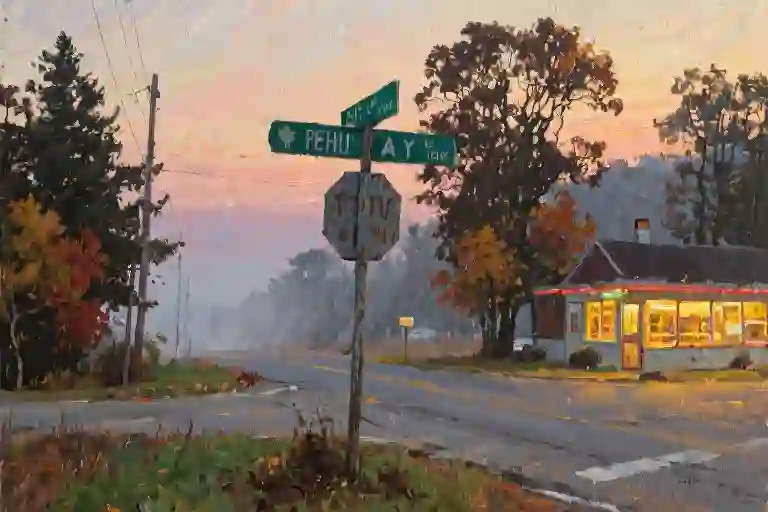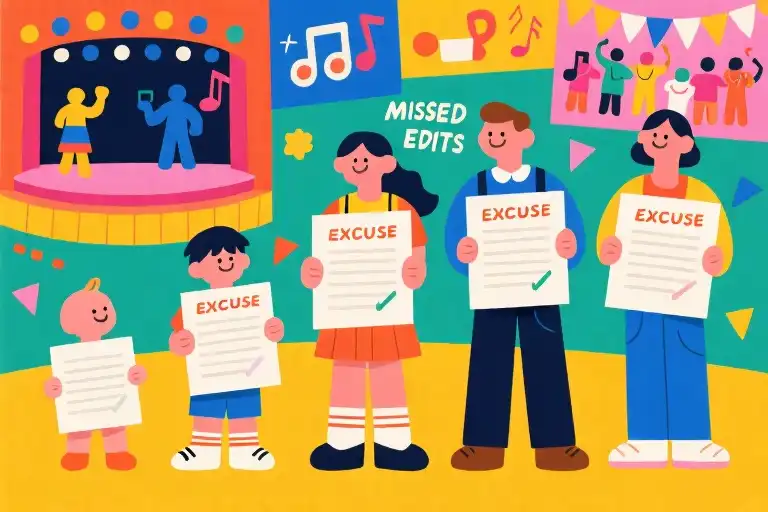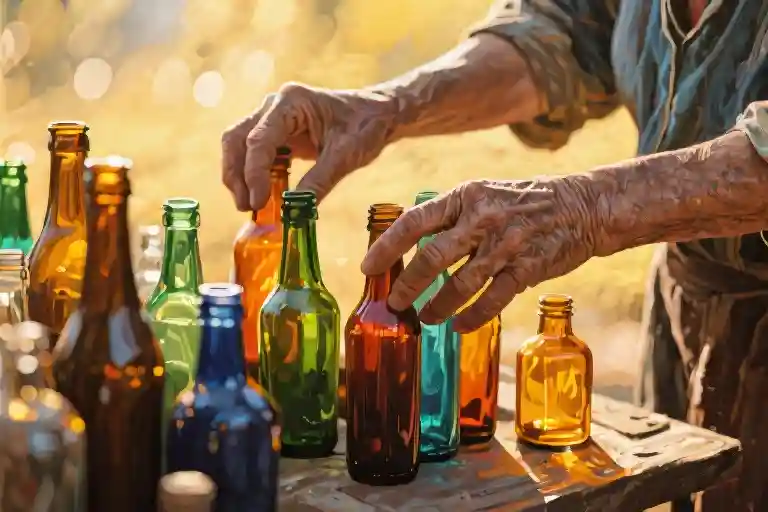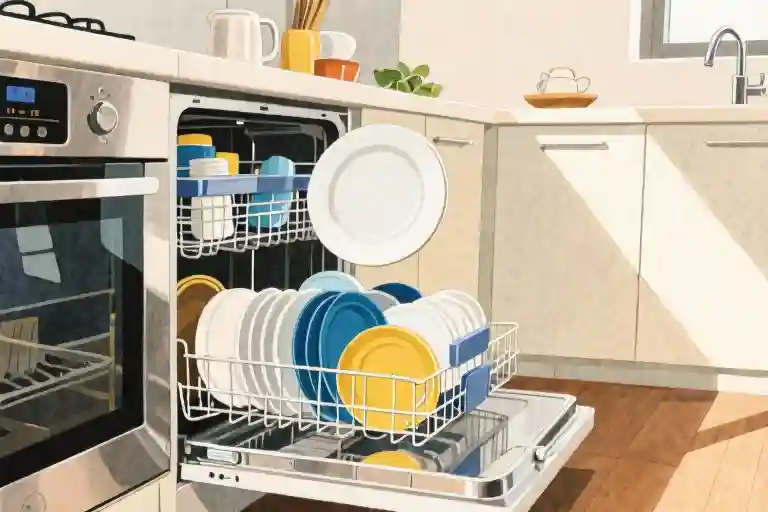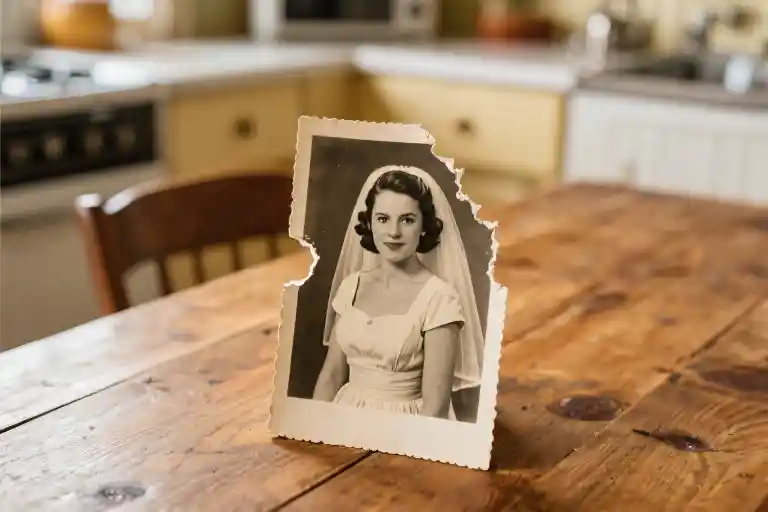The cake had precisely forty-six candles – one for each year, plus the ‘insurance candle’ Grampa Fred insisted on adding since 1987. I watched wax drip onto vanilla frosting as Dad prepared to blow them out, the kind of moment that makes people say things like ‘Thanks for making Dad’ without considering the consequences.
Grampa’s left eyelid descended in slow motion. That trademark wink that preceded every inappropriate comment in family history. ‘It was my…’ he paused just long enough for my teenage brain to panic ‘…pleasure.’ His voice curled around the word like smoke from his ever-present Lucky Strike.
‘Gross, Grampa.’ My automatic response came coated in the same hormonal disgust I reserved for cafeteria mystery meat. The kitchen erupted in that particular family laughter where relatives glance sideways to see who else is scandalized.
‘And tight as hell,’ he added sotto voce, tapping his temple with the hand not holding a High Life. The beer bottle’s condensation left a temporary tattoo on his forehead, glistening under the fluorescent kitchen lights of our Maine ranch house. That moment crystallized my grandfather’s curriculum: Advanced Family Humor 499, prerequisite being the ability to make Baptist aunts clutch their pearl necklaces without breaking character.
Montville, Maine clung to Grampa Fred’s vowels even after sixty years in Massachusetts. He pronounced ‘pleasure’ with that Down East cadence that turned two syllables into three – ‘pleh-ay-zher’ – the same way he still called supermarkets ‘the A&P’ and referred to blizzards as ‘some weather.’ The town had imprinted on him like a reverse birthmark, visible only when he spoke or smiled or told stories about rambling through 1940s rural America like some freckled hobo philosopher.
From the ‘Old Pictures of Forgotten Maine’ Facebook group I’d later scavenge images matching his stories: black-and-white shots of Montville’s single paved road flanked by maple trees, the Baptist church where he learned to charm old ladies into giving him lemon squares, the general store counter where he’d sit swinging his legs while men discussed Roosevelt and fishing quotas. In these photos I searched for the boy who’d become the man who made my father who made me – a genetic Russian nesting doll with increasingly worse social skills.
That birthday kitchen smelled of chocolate cake and Marlboros, of Old Spice and the faint metallic tang of well water from Grampa’s childhood home. The scents mingled with the sound of my aunt’s scandalized ‘Fred!’ and the clink of ice cubes against jelly jar glasses. Some families inherit silver or real estate; ours passed down the sacred art of inappropriate timing and the ability to keep straight faces during communion.
Grampa’s humor came steeped in that particular New England pragmatism where sex jokes and weather reports shared equal billing. His wink wasn’t just punctuation – it was the entire grammar of our relationship, a Morse code transmitted across generations. When I’d groan at his jokes, he’d counter with ‘Better a tight ass than an empty head,’ another of his Maine-isms that sounded folksy until you parsed the meaning.
Years later, standing at a Montville crossroads in midnight rain, I’d understand his lessons weren’t just about laughter. They were survival tools for navigating small towns and smaller minds, delivered in the only packaging a teenage boy would accept – wrapped in scandal and tied with a smirk.
The Montville Social Virus
Grampa Fred didn’t just walk through Montville – he conducted a one-man social symphony across that sleepy Maine town. His daily route read like a menu of human connection: 7am at the white clapboard church helping Reverend Coley arrange hymnals (and scoring fresh blueberry muffins), 11:30am ‘accidentally’ passing by the schoolhouse when Miss Perkins took her lunch break (her famous venison stew always made three portions), 3pm at Hanson’s Tavern where the bartender would let him ‘test’ the new root beer batches. The man could turn a five-minute errand into a three-hour social event with mechanics, ministers, and milkmen alike.
Montville’s residents didn’t merely tolerate this – they actively enabled it. Housewives ‘happened’ to bake extra molasses cookies when harvest season brought Fred past their farms. The hardware store kept a special stool by the potbellied stove where he’d hold court during winter months. Even the town’s stray dogs seemed to understand the protocol, following him like fuzzy ambassadors to their owners’ doorsteps. There was an unspoken rule in that pre-internet era: if Fred stopped by, you fed him. Not out of obligation, but because nobody told stories about logging camps or moose encounters quite like he did.
The legend of the 1952 Thanksgiving Blizzard cemented his status. When three feet of snow trapped travelers along Route 3, eighteen-year-old Fred somehow appeared at every stranded vehicle with thermoses of clam chowder from the diner, wool blankets from the general store, and – according to at least two sworn affidavits from elderly residents – a miraculously unfrozen cherry pie. By nightfall, he’d orchestrated an impromptu shelter in the elementary school basement using donated kerosene heaters and his own seemingly endless supply of jokes about amorous lobsters. The next morning, when the plows finally arrived, they found not a group of freezing victims but a tipsy singalong of complete strangers now calling each other ‘cousin’.
What fascinates me isn’t just his social alchemy, but how Montville’s very infrastructure facilitated it. The town’s geography practically conspired to create human collisions – the single mailbox where everyone collected letters at noon, the shared icehouse where men gathered to complain about wives and weather in equal measure. These weren’t just physical locations but social accelerators, places where privacy dissolved into community whether you wanted it to or not. Grampa didn’t conquer Montville’s social scene so much as surrender to its gravitational pull.
Sometimes I try to map his routes on Google Earth, tracing invisible lines between the church (now a yoga studio) and the tavern (condemned in 1998). The satellite images show empty lots where his accomplices once baked extra pies, parking spaces where horses once stood hitched during his storytelling marathons. But the real map lives in the way my fingers still twitch toward my phone when I pass an interesting front porch, in that inherited impulse to turn strangers into neighbors that I’ve spent my whole life suppressing. The Montville social virus skipped a generation – but like any good Maine blizzard, you can still feel it in your bones long after the storm has passed.
Satan Is My Penpal
The Official Anti-Social Location Rating System (SS-Class Graveyards and Beyond)
While Grampa Fred collected dinner invitations like baseball cards, I’ve spent three decades curating the opposite – places where human interaction goes to die. Here’s my rigorously unscientific grading scale for optimal solitude:
SS-Class (Sacred Solitude):
- Rain-drenched graveyards at 3:17AM (lightning optional but preferred)
- Abandoned textile mills where the loom ghosts still whisper
- The exact center point of midnight crossroads (bring your own demonic contractor)
A-Class:
- 24-hour laundromats during nor’easters
- Empty confessionals in coastal Maine Catholic churches
- The last booth at diners where the coffee’s been burning since 1972
Pro Tip: True connoisseurs know humidity matters. A properly decaying New England cemetery should feel like Satan’s sauna – that clammy embrace where your shirt sticks to granite angels just right.
A Demon Who Gets It
You’d think Satan would be the life of the party, what with all the orgies and inverted crosses. But between us non-people-persons? He’s shockingly relatable.
Actual conversation fragment from last Thursday’s existential crisis:
ME: kicks pebble at crossroads
SATAN: materializes smelling of sulfur and disappointment “Ugh. Neighborhood potluck again?”
ME: “Worse. Baby shower.”
SATAN: sympathetic hiss “I’d rather get exorcised.”
Turns out the Prince of Darkness shares my disdain for:
- Mandatory cupcake decorating
- Colleagues who say “living the dream!” unironically
- That one aunt who asks about your dating life while microwaving fish
The Poetry of Abandoned Intersections
There’s a particular quality to 2AM precipitation in Montville – not quite rain, not quite mist, just the sky slowly dissolving. Perfect for:
- Watching stoplights cycle through colors for nobody
- Imagining Grampa’s ghost debating roadkill philosophy with Beelzebub
- Not explaining your life choices to neighbors
Visual haiku:
Flickering streetlamp
Two shadows pass without waves
Puddle swallows keys
Sometimes I wonder if Grampa’s roaming spirit tries visiting these places, only to find his own grandson has become the town’s anti-social monument. The ultimate rebellion – taking his wandering legacy and sitting very, very still with it.
Footnote for the curious: Yes, Satan does appreciate a properly aged scotch. No, he won’t help you “win back” your ex. Some lines even darkness won’t cross.”
The DNA Wars
Grampa Fred’s bloodstream must have been 90% pure social adrenaline. If scientists ever studied his brain scans, they’d discover dopamine geysers erupting every time someone made eye contact. His neurological pathways probably looked like Times Square on New Year’s Eve – all flashing “CONNECT!” signs and serotonin fireworks. Meanwhile, my brain scans would show my amygdala building medieval fortifications whenever the phone rings.
This genetic divergence became obvious during our weekly hardware store pilgrimages. Grampa would turn a five-minute nail purchase into a town hall meeting, holding court by the power tools aisle while I lurked near the paint thinner, calculating escape routes. The same fluorescent lights that made him glow like a Baptist preacher made me crave the darkness behind the stacked lumber.
Yet we shared one sacred ritual among the hanging chains and copper fittings. However differently our brains processed the world, we both understood the alchemy of a perfectly balanced wrench set, the monastic silence of a well-organized bolt bin. In those narrow aisles smelling of machine oil and pine sawdust, our DNA called temporary truce.
Modern neuroscience would call this mirror neuron activation. Grampa called it “finally getting you to talk to somebody” when I’d debate the merits of galvanized versus stainless steel with old man Henderson at the counter. For twenty minutes every Saturday, we became a normal grandfather and grandson bonding over household repairs – until the bell over the door announced fresh victims for Grampa’s social experiments and sent me retreating to the parking lot.
Sometimes I imagine our genetic material locked in eternal combat – his extroversion genes performing Broadway numbers while my introvert DNA plays funeral dirges. The battlefield stretches from Montville’s general store to my current apartment’s peephole. But in hardware store aisles, where the scent of WD-40 hangs like incense, the warring nucleotides pause to admire a perfectly calibrated torque wrench together.
The Last Joke
The hospital monitor beeped like a metronome counting down to some final cadence. Grampa Fred’s hands, those same hands that once gestured wildly during his Montville rambling stories, now lay still on the starch-white sheets. I adjusted his oxygen tube, catching a whiff of antiseptic and the faintest trace of his old barbershop cologne.
“So kid,” his voice rasped like gravel under bicycle tires, “when you meet Satan at those crossroads…” A pause. The twinkle. “Tell him I’ll take him at poker. Dumbass still thinks three-of-a-kind beats a flush.”
Rain tapped Morse code against the window as his breathing slowed. Outside, the neon sign of Lou’s Diner reflected in puddles – that same diner where teenage Fred had charmed free blueberry pies in 1953. The cardiac monitor flatlined just as lightning illuminated the ‘Montville City Limits’ sign across the road.
At midnight, carrying his ashes in a surprisingly heavy urn (“See? Still making Dad jokes from beyond,” I muttered), I stopped at the crossroads near the abandoned textile mill. Two shadows leaned against the rusted ‘Population 387’ sign. One held a familiar flask; the other flicked playing cards into a spectral hat. The wind carried laughter that smelled of whiskey and thunderstorms.
I poured Grampa’s ashes into the mud. “Your deal, Satan.”

